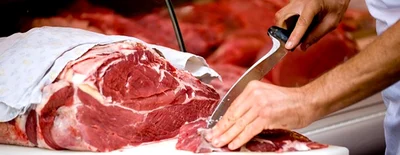Free trade agreement 'disappointing' for New Zealand

New Zealand’s red meat sector is deeply disappointed and concerned at the poor-quality European Union-New Zealand trade deal, which will continue to put it at a disadvantage in its third-largest export market.
Prime Minister Jacinda Ardern and president of the European Commission Ursula von der Leyen concluded negotiations on the NZ-EU Free Trade Agreement last month.
The deal will see only a small quota for New Zealand beef into the European Union – 10,000 tonnes into a market that consumes 6.5 million tonnes of beef annually – far less than the red meat sector’s expectations.
Ashburton farmer David Clark was not afraid to voice his opinion.
“It is very disappointing that dairy and beef products have received little if any concessions in the European FTA,” he said.
“NZ farmers strive to have very high standards of animal welfare, and environmental stewardship and have now joined in climate action by being the first farmers in the world to price and regulate methane emissions from livestock via He Waka Eke Noa.
Unfortunately, it seems a trading bloc of the world’s most discerning consumers has only allowed Free Trade access to what amounts to 0.1 per cent of European beef consumption.
“While there is some benefit over time for horticultural, viticultural, and seafood products, the tilt of balance seems to be in favour of European exports to NZ giving significantly more Free Trade Access to our market.
“This agreement will increase NZ’s reliance on Asian markets for meat and milk.
“We have some of the best trade negotiators on the planet who argue from a position of reason and evidence,” William Rolleston of Blue Cliff Station said.
“It seems clear to me that our negotiators have had to balance trade volume quotas with the desire of the EU to enforce their practices and beliefs on New Zealand farmers.
“Countries that are outside the EU but trade freely with the EU such as Norway have had to enact around 60 per cent of the EU directives for that privilege. Many of those rules with respect to the environment limit or direct inputs rather than limit the effects – rules New Zealand farmers would find hard to swallow.
“In relation to the EU meat market, the quotas are a rounding error they are so small. It seems our trade negotiators have considered that it was worth sacrificing volume to avoid the worst of EU requirements which may not have been fit for purpose in New Zealand,” Rolleston said.
“We still have a trade deal with the USA to negotiate. The compromises we have made will send a negative signal that we are willing to compromise our livestock farmers.”
- By Pat Deavoll

